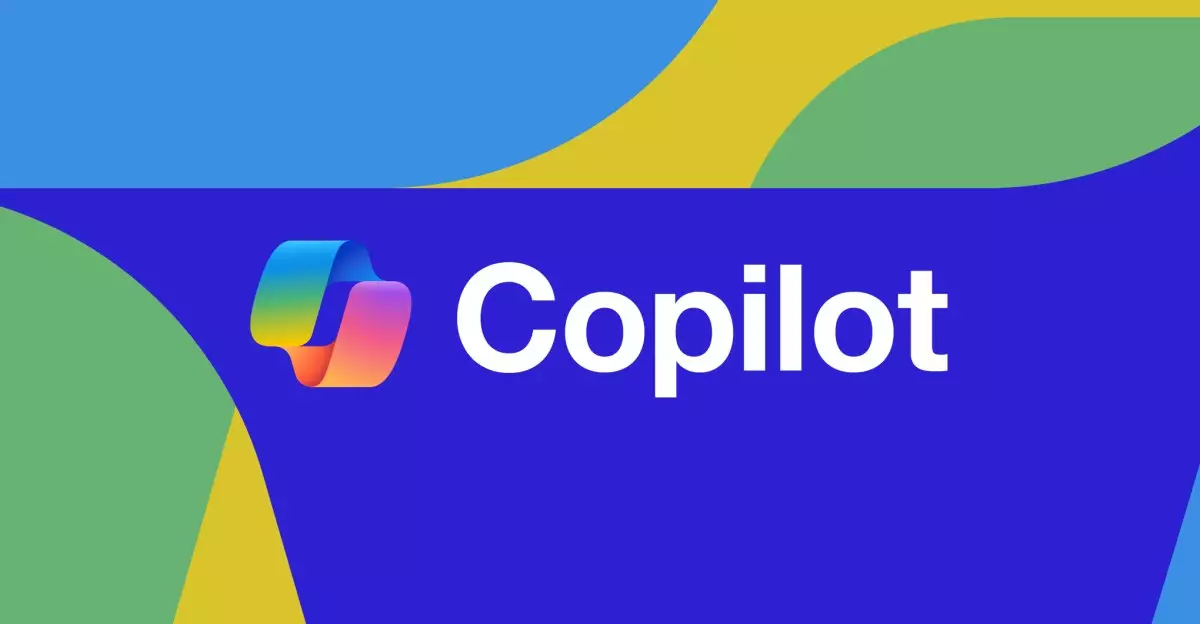Microsoft is embarking on a transformative journey with its AI assistant, Copilot, revitalizing how users interact with technology. As the tech giant celebrates 50 years of innovation, it introduces an array of enhancements that go beyond mere function, aiming instead to create a personalized digital experience. The latest updates are set to place Copilot on par with popular alternatives like ChatGPT and Claude, making intelligent interaction more accessible and intuitive for everyone.
The essence of these enhancements lies in personalization—a cornerstone of user satisfaction in the digital age. By incorporating memory capabilities, Copilot can remember user preferences, important dates, and unique interests, allowing it to offer tailored responses and proactive suggestions. This shift signifies a fundamental change in the AI landscape; it’s not just about responding to queries anymore, but rather about forming a deeper connection with the user. Microsoft is keen to stress that users can choose what information they wish for the AI to retain, placing control back into the hands of individuals, a move that demonstrates a sensitivity to privacy concerns prevalent among consumers today.
The Emergence of AI-Driven Web Actions
One of the standout features of the enhanced Copilot is its new web actions functionality. With this tool, users can execute various online tasks, harnessing the power of the web directly from the AI interface. Imagine booking concert tickets or making restaurant reservations without ever needing to leave the chat window—a functionality that promises to streamline digital interactions significantly. The seamless integration with retail platforms for product research and discounts will enhance the shopping experience, making it easier for consumers to make informed decisions.
This integration signifies a shift in how individuals utilize AI in their daily lives. No longer just passive assistants, modern AI tools like Copilot are evolving into active participants in the decision-making process, capable of browsing the internet for necessities and offering thoughtful suggestions. By pushing the envelope on web actions, Microsoft is setting a new standard for utility in personal computing.
Visual and Contextual Awareness with Copilot Vision
An intriguing addition to Copilot’s capabilities is its visual recognition feature, Copilot Vision. This component allows the AI to “see” and interpret images both from a user’s camera and within various apps on their devices. This feature takes AI assistance to another level by enabling users to interact with their digital content more dynamically. Imagine pointing your phone’s camera at an object and having Copilot provide instant information or context about it—this is not fantasy; this is the reality and potential of intelligent technology in users’ hands.
What is particularly exciting about Copilot Vision is its potential to create rich, informative experiences that engage users on multiple sensory levels. By marrying visual data with conversational AI, Microsoft is opening the door to applications that could enhance education, training, and entertainment, thereby adding unprecedented value to the user experience.
Deep Diving into Research
The incorporation of Deep Research capabilities within Copilot marks a significant leap for users engaged in academic and complex project work. This feature enables Copilot to sift through vast amounts of documents and online resources, delivering insightful analysis tailored to the user’s specific inquiries. By merging these efforts with Bing’s AI capabilities, Microsoft is leveraging existing infrastructure to ensure that users receive comprehensive, well-researched answers, effectively transforming the way information is consumed and synthesized.
This functionality holds vast implications for professionals and learners alike. No longer will users need to toggle through multiple tabs and sources; Copilot will streamline research processes, enabling a more efficient use of time and enhancing overall productivity.
The Future of Personal AI
Microsoft’s commitment to evolving Copilot showcases a broader movement in technology toward hyper-personalization and contextual understanding. The insistence on making Copilot a unique extension of each user speaks volumes about the potential of AI technology to assist beyond traditional limits. Imagine a future where your AI can mirror your communication style, understand your specific requirements in real-time, and even suggest creative outputs based on your browsing history or preferences. Such functionalities could revolutionize both work and leisure, transforming mundane tasks into engaging interactions.
While Microsoft acknowledges it is still “early in this thinking,” the company is clearly setting ambitious goals for the future of AI. As the functionality begins to roll out in “initial versions,” users are left to ponder the exciting possibilities that lie ahead. Will we see AI that embodies our personalities in a truly seamless manner? Will Copilot’s development ignite a widespread embrace of personalized digital companions? The answers remain to be seen, but the anticipation is indeed palpable.

